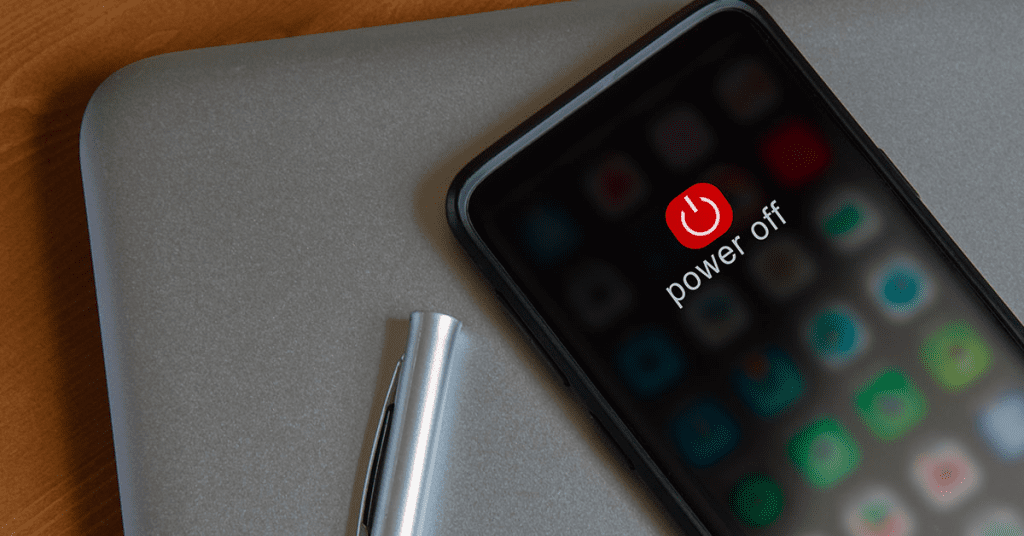In today’s digital world, smartphones have become indispensable tools, serving as our connection to the world for communication, work, and entertainment. Whether managing emails, scrolling through social media, or shopping online, our devices are rarely out of reach. However, with this increased reliance comes heightened security risks. From malware to data breaches, our phones are more vulnerable than we might realize. This is why the National Security Agency (NSA) recommends a simple practice: turn your phone off once a week. But why does this matter?

The Power of a Simple Reboot
You might think that turning your phone off and on is a trivial task, but it’s actually a crucial step in defending against cybersecurity threats. The NSA advises rebooting your phone weekly because it disrupts any malware or malicious code that may be running in the background. By breaking the cycle of continuous operation, you can stop harmful processes from continuing without your knowledge. This small action acts as a low-tech solution to a high-tech problem.
Why is this important? Some malware can run silently, collecting personal data or accessing sensitive information without your awareness. A reboot can flush out these temporary files, halting any malicious activity in its tracks.
Clearing Out Malicious Code
One of the biggest reasons to reboot your phone regularly is to disrupt ongoing cyberattacks. Hackers use increasingly sophisticated techniques, such as zero-click attacks, which don’t even require user interaction to compromise your phone. Once malware has infiltrated your device, it can access everything from your data to your location.
Turning off your phone severs the connection between the malware and the system, making it difficult for attackers to maintain control. While this might not entirely remove the malware, it can significantly reduce its impact by halting its operations temporarily. Think of it like cutting off oxygen to a fire—though it may not completely extinguish the threat, it stops it from growing.
Reinforcing Mobile Security Practices
While rebooting your phone weekly is an essential step, it shouldn’t be the only measure you take to protect your device. The NSA also highlights several key security practices to safeguard your phone from threats:
- Keep your software updated: Regular operating system and app updates often contain security patches to fix newly discovered vulnerabilities.
- Avoid public Wi-Fi networks: These networks are prime targets for hackers looking to steal sensitive information. Use a Virtual Private Network (VPN) when you must connect to public Wi-Fi.
- Only download apps from trusted sources: Stick to official app stores like Google Play or the Apple App Store to minimize the risk of downloading malicious apps.
- Turn off Bluetooth and location services when not in use: These features can expose your device to security risks, especially when connected to unknown devices or networks.
Avoiding Public Networks and Dangerous Apps

Public Wi-Fi networks, such as those found in airports or coffee shops, are notoriously risky. Hackers can set up fake Wi-Fi networks designed to intercept your information, including passwords, emails, and credit card numbers. By avoiding these networks or using a VPN for added protection, you can significantly lower your chances of falling victim to cyberattacks.
Equally important is being mindful of the apps you download. Malicious apps often disguise themselves as legitimate, gaining access to your personal data once installed. Always check app permissions and ensure you download only from trusted sources to avoid exposing yourself to unnecessary risks.
Boosting Phone Performance and Longevity
Beyond its security benefits, rebooting your phone can improve its performance. Over time, smartphones accumulate temporary files, cached data, and background apps that can slow down your device. A weekly reboot helps clear out these files, giving your phone a fresh start and speeding up performance.
Additionally, apps that run in the background can drain your battery and consume valuable resources, making your phone sluggish. A quick restart can free up memory, allowing your device to function more efficiently and potentially extending its overall lifespan.
Preserving Your Phone’s Battery Life
Constantly running processes, including background apps and potential malware, can contribute to faster battery drain. By rebooting your phone, you effectively pause these processes, giving your battery a break. This is particularly important for maintaining the health of your phone’s lithium-ion battery, which powers most modern smartphones.
Rebooting also helps cool down the battery, preventing overheating—an issue that can shorten your battery’s lifespan. Regularly restarting your phone not only enhances its security but also helps preserve its long-term battery life.
Embracing Good Digital Hygiene
The NSA’s advice to reboot your phone weekly is just one part of a broader approach to maintaining good digital hygiene. In addition to regularly restarting your phone, adopting other security measures is crucial for keeping your device safe from evolving threats. These include:
- Use strong, unique passwords: Protect all of your accounts with complex passwords, and enable two-factor authentication (2FA) wherever possible.
- Regularly back up your data: Ensure that your phone’s data is backed up, whether through cloud services or physical storage, to protect against loss in the event of a cyberattack or device failure.
- Monitor app permissions: Check that apps only have access to data and features they need, like your microphone, camera, or location services.
- Stay cautious with suspicious links: Avoid clicking on links or downloading attachments from emails, texts, or social media messages unless you trust the source, as they could lead to malware infections.
A Simple Step for Greater Security
In a world where cyberattacks grow more sophisticated every day, even small actions can make a significant difference in protecting your personal data. Turning off your phone once a week is one such step. It’s simple yet effective in thwarting potential threats and boosting your phone’s performance. When combined with other best practices, like keeping your software up to date and avoiding public Wi-Fi networks, rebooting your phone helps ensure that your digital life remains secure.
Conclusion: A Small Task with Big Benefits
While rebooting your phone might seem like an unnecessary task, the security and performance benefits far outweigh the minimal effort required. The next time you’re tempted to keep your phone running non-stop, remember that a simple restart could be the key to protecting your personal data, improving your phone’s performance, and extending its lifespan.
In a world where smartphones have become essential to our daily lives, safeguarding these devices from cyber threats is more critical than ever. So take the NSA’s advice to heart—turn off your phone once a week, and enjoy the peace of mind that comes with knowing your device is better protected against potential attacks.